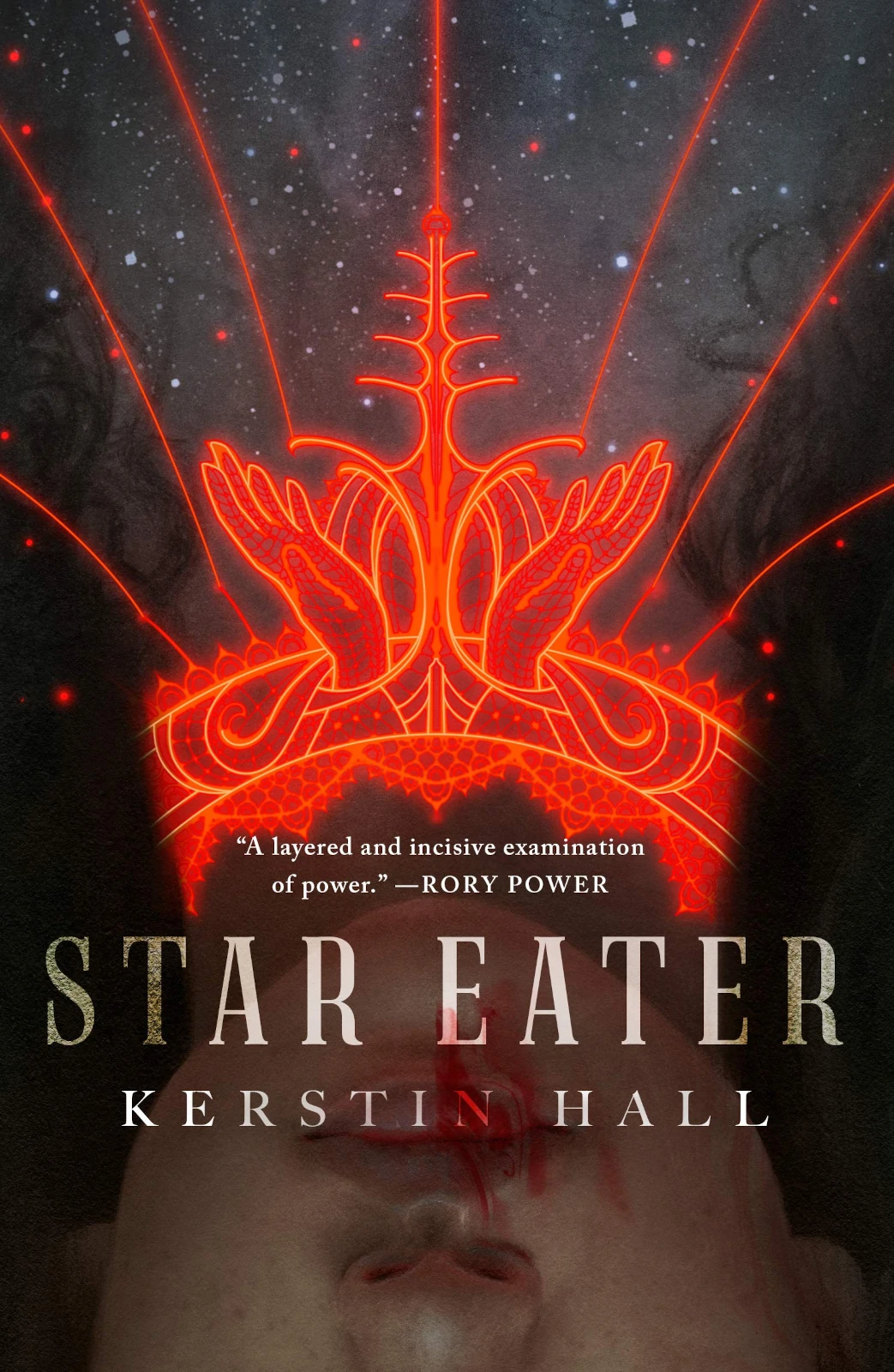
A Review of Star Eater by Kerstin Hall
Words By Emma Johnson-Rivard
Published June 22, 2021 by Tordotcom
“All martyrdoms are difficult.”
So reads the tagline of Kerstin Hall’s latest novel, a gripping exploration of power and agency within oppressive systems.
Elfreda Raughn has a problem. A member of a magical Sisterhood, it’s her duty to maintain order and keep Aytrium floating upon the magical pillars that the Star Eater established a millennia ago—lest the city crash into the abyss of monstrous Haunts below. It’s the duty of every Sister to produce a daughter who will one day devour her mother in search of magical power. Conception is ritualized and abortion is forbidden. Terrified of falling pregnant, Elfreda wants out at any cost. Blackmailed into assisting a shadowy rebellion, she gains access to both the highest levels of the Sisterhood and the complex mysteries surrounding the Star Eater.
A story of monsters, ritual, and the weight of obligation in the face of love, Star Eater begins with a deceptively conventional opening before shifting into something stranger and much more interesting. Featuring a complex system of magic, belief, and the varying intersections of faith and ritual, Star Eater’s one flaw might be combining too many characters and plot elements into a single storyline. It’s a difficult balancing act to handle a conspiracy, a murder mystery, and a chosen-one narrative on top of an incredibly complex system of magic and worldbuilding. And, to Star Eater’s credit, it’s a balance the story mostly manages to strike. The characters have enough breathing room to develop, the world of Aytrium reveals itself in intriguing ways through both the mundane and the utterly strange, and it avoids falling into the more common pitfalls of modern horror fiction. The story feels lived in without needlessly info-dumping, though there is one moment toward the middle involving details of the magic system that would have benefitted from some fleshing out before it became an important plot element instead of being revealed in-scene the moment it becomes relevant.
I have to admit that I’m a hard sell on first-person narratives. Call it a stylistic preference. I’m happy to report that Elfreda makes for an intriguing narrator, balancing the line between absorbing introspection while never getting too quick or too slow to pick up on the plot twists. It’s a difficult balance to strike, but one that Hall handles masterfully. Star Eater’s emotional arc concerns Elfreda’s relationship with three other characters; siblings Finn and Millie, both of whom Elfreda has known since childhood and has complicated romantic feelings for, and her mother, Kirane, who has since been martyred and left alive only so the other Sisters can devour her body to increase their own magical power.
I am also a hard sell on love triangles. To Hall’s credit, she doesn’t shy away from exploring the complexities of love under these circumstances, both familiar and romantic, and how the characters compromise and change in order to survive an imperfect world. Elfreda is flawed and her power makes her dangerous, as does her participation in a system that oppresses the people around her. Her journey from reluctant but willing participant to active rebellion comes organically, in fits and starts as she swings from acting out of self-preservation to genuinely believing change is possible, and with more than a few twists I didn’t see coming. And while the ending hits quickly, it does so in a way that ties all the narrative threads together in a neat, cohesive whole.
Star Eater’s deceptively conventional opening implies a far more mundane story with a love triangle and a murder mystery that I’d seen many times before. But the actual story is interested in deeper and stranger questions about human nature, how people endure under oppression, and the power of belief in the face of overwhelming odds, and far more interesting. It is also extremely, enthusiastically, queer. I highly recommend it.